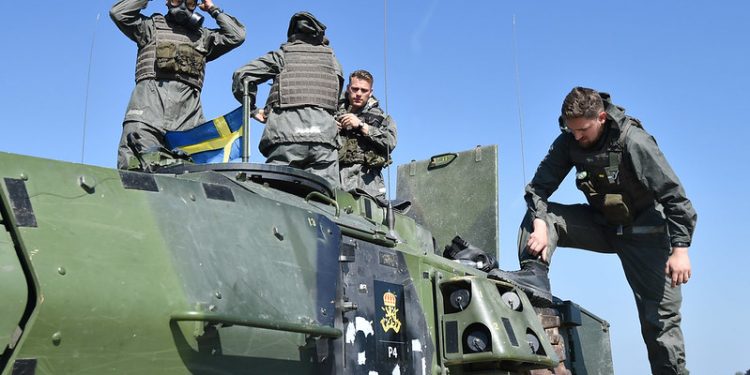Amid escalating gang-related violence, Sweden’s Prime Minister Ulf Kristersson is convening a high-level meeting with the country’s police chief and armed forces head, Micael Byden, to deliberate on possible military intervention.
The urgent discussion follows a recent spate of violence which included two men being fatally shot in Stockholm and a 25-year-old woman tragically killed in an explosion north of the capital.
During a special televised address, PM Kristersson expressed determination, stating, “We are committed to dismantling the gangs and ending their reign.”
While the specific role of the military remains undefined, past conversations hint at the possibility of the army assuming some police functions, allowing the police to focus on tackling crime.
However, some critics argue that such measures are only a superficial solution, not addressing the underlying causes of the violence. As reported by Dagens Nyheter, gang violence fatalities this month have reached their highest since December 2019. The rising tension is believed to be linked to a split within the Foxtrot network gang.
Highlighting the unprecedented situation, Mr. Kristersson noted that no European country is grappling with such levels of violence. Innocent civilians, including children, are increasingly becoming collateral damage.
The gravity of the situation is underscored by incidents like the explosion in Fullero and fatal shootings in Jordbro and near a busy Stockholm sports field.
Shootings in Sweden reached a record high last year, with over 60 fatalities, and this year’s trajectory appears similarly grim. A 2021 government report revealed that Sweden’s shooting-related deaths are considerably higher than the European average.
Factors like inadequate immigrant integration, growing socio-economic disparities, and drug-related issues are believed to contribute to the increasing violence.
While the current government, supported by the anti-immigration Sweden Democrats, has struggled to curtail the violence, Prime Minister Kristersson unveiled measures such as stricter gun laws, enhanced surveillance, increased deportation powers, and expanded stop-and-search zones, inspired by his recent New York visit.
Yet, community leaders like Sakariya Hirsi of Kollektiv Sorg emphasize the need to address deep-seated societal issues. Hirsi advocates for a comprehensive approach, focusing on child poverty and reinforcing youth and community services.

